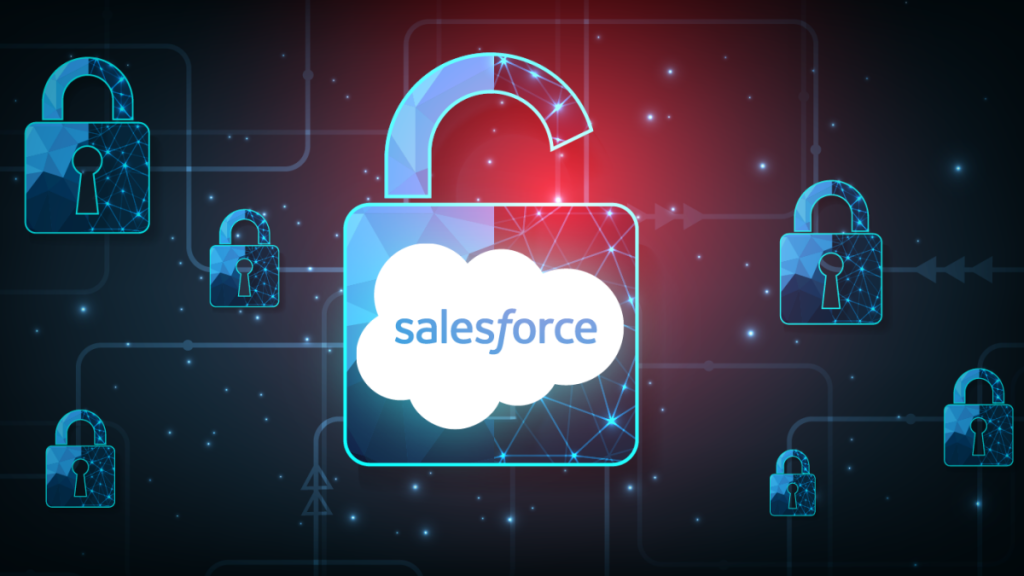Since cloud technology is becoming more integrated into the business, Salesforce has emerged to be an important tool in handling customer relations and important business information. Nevertheless, with the increased adoption of cloud-based platforms, the security of your data becomes a valued factor. Due to the importance of the information that businesses handle for their clients, it becomes high time that they ensure their information has the best security features possible.
Why Salesforce Data Security Matters
In today’s cloud-driven world, data breaches and cyber threats are more prevalent than ever. As organizations store more information in the cloud, the need for comprehensive Salesforce data security strategies has never been greater. Customer information, sales records, and financial data stored on Salesforce are highly sensitive, and any unauthorized access or data loss can lead to severe consequences for businesses, including financial losses and reputational damage.
Common Threats to Salesforce Data
It shall be important to note that the weaknesses are equally vital to assess as they help in enhancing the security of the Salesforce data. Some of the most common threats include:
- Phishing Attacks: A favorite tactic for hackers is to send phishing emails to users, to obtain unauthorized access to the accounts in Salesforce. Once they have gained access as a user they can easily pilfer information or corrupt the system.
- Insider Threats: It is important to note that internal-related data breaches are not a figment of everyone’s imagination. Insider threats can be a result of disgruntlement or purely by recklessness of internal employees of the firm.
- Insecure Third-Party Integrations: Although Salesforce integrates with many third-party applications, many of them have potential security risks if they are not endorsed or protected.
- Weak Passwords: Examples of pass management vices include the use of poor passwords, the use of short passwords, and or failure to change passwords frequently.
- Understanding these threats enables businesses to take the appropriate steps that will prevent their Salesforce data from being compromised by external or internal threats.
Key Security Features to Implement in Salesforce
To enhance the security of data within Salesforce businesses have to ensure that they use the available strengths within the software. Below are several essential features that can help safeguard your data:
- Two-Factor Authentication (2FA): Applying 2FA reduces the odds of malicious actors accessing the user’s accounts because it demands the user to enter two factors of identification; for instance, the password and a numerical code.
- Role-Based Access Controls (RBAC): Role-based access control involves giving certain levels of permissions to various employees in line with their duty so that they only get to access some of the information they require in their line of duty. This reduces the possibility of exposing certain information to third parties who have no business with considering the information.
- Encryption: This means that in terms of data encryption, Salesforce provides available choices for data stored and data in transit. Data encrypting affords data the feature that even if it gets into the wrong hands the contents cannot be understood without the help of an unlocking code.
- IP Whitelisting: Another feature is IP Whitelist that permits access to Salesforce CRM only from certain IP addresses thus minimizing the probability of access by unknown sources.
- Audit Trails: Another is the audit trail which is very important for the salesforce because through the trail one can record certain changes made within data so that through the trail one can see certain suspicious activity or even someone has tried to make changes that are unauthorized or probably some security breach.
Best Practices for Strengthening Salesforce Data Security
In addition to leveraging Salesforce’s built-in security features, businesses should adopt the following best practices to enhance data protection:
- Regular Security Audits: Performing the security audit on a timely basis is crucial, which allows to reveal the weak points and to synchronize the security measures taken with the modern requirements.
- Employee Training: Informing the employees on security fundamentals including how to identify phishing campaigns and creating strong passwords is a key way of minimizing risks resulting from insiders and mistakes.
- Monitor and Limit API Access: Some of the integrations that are common with Salesforce employ the use of APIs in retrieving Salesforce data. One way of protecting data is by controlling the use of API and being vigilant in their operations to avoid cases of data leakage and manipulation.
Conclusion
With organizations moving their operations to cloud-based platforms such as Salesforce, the security of information remains a critical factor in the functionality of day-to-day operations and consumers’ confidence. It’s important that organizations familiarise themselves with such threats, and therefore adopt robust controls for Salesforce data security including user authentication, data encryption, and security reviews. Preemptively enhancing your organization’s Salesforce security serves both the purpose of preserving business data integrity and keeping your company’s operations and systems legal-compliant and barricaded against new and emerging cyber threats.

